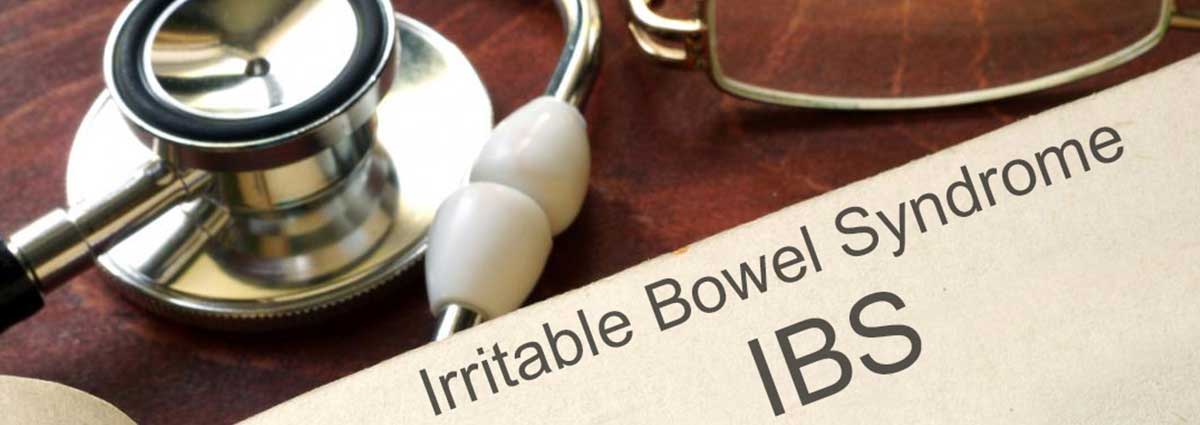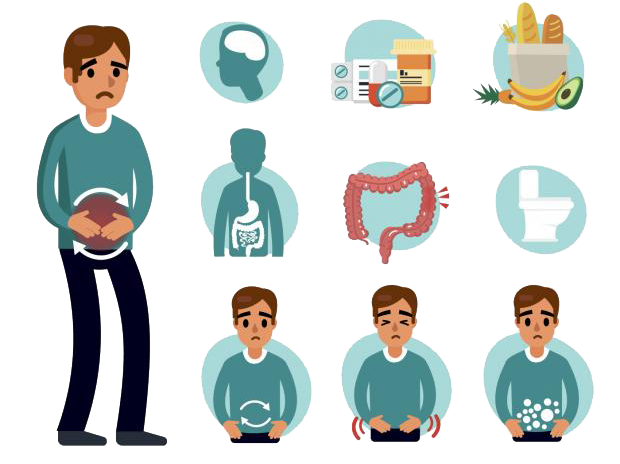Why is it called Irritable Bowel Syndrome (IBS)?
People with IBS have very sensitive nerve endings in the bowel wall. Normal activities like eating a meal, having stress at work or menstruation in women are perceived differently in the intestines, creating a flare up of symptoms including diarrhea, bloating, pain and discomfort.
How common is IBS?
IBS affects 10 to 20% of the population and is the most common functional gastrointestinal (GI) disorder. Women are twice as likely to be affected than men, and the disease is more common in young people under the age of 45.
Is IBS forever?
The percentage of people who suffer with IBS is fairly stable. Over time, 10% of individuals will overcome their symptoms while others will develop IBS.
Is IBS a serious disease?
IBS is not a serious disease, and there are no long-term organic complications associated to it. There is no greater need for preventive checkups than other people.
However, the severity of the pain can vary from mild to severe, both from person to person and time to time. The impact of IBS can range from mild inconvenience to severe debilitation, affecting a person’s emotional, social and professional life.
How is IBS diagnosed?
There is no single test to diagnose IBS. Several gastrointestinal conditions produce similar symptoms. A medical history, physical examination and selected tests are used to rule out other more serious gastrointestinal conditions.
A formal set of diagnostic criteria known as the Rome IV criteria are used to establish a diagnosis.
Rome IV Criteria for IBS
Recurrent abdominal pain on average at least 1 day a week during the last 3 months associated with two or more of the following:
- Related to defecation;
- Associated with a change in a frequency of stool, and;
- Associated with a change in form (consistency) of stool.
Symptoms must have started at least 6 months ago.
Is stress causing IBS?
Stress does not cause IBS but stress can worsen or trigger symptoms. This is the reason why we encourage people with IBS to address stress and consider relaxation therapies.
What foods should be avoided when suffering from IBS? What is the low FODMAP diet?
This is the single most common question that people with IBS have.
A lot of people notice that their symptoms appear to get worse following a meal. Diet, food and other factors, such as stressors or hormonal changes, may play a role on a particular day, pushing symptoms "over the edge." Food intolerances, food sensitivities or allergies are mechanisms that are studied as possible causes.
The low FODMAP diet is a plan consisting of lower amounts of specific sugars that trigger symptoms in patients with functional gut disorders. At this point, we have sufficient evidence that this diet provides an effective approach for the management of patients with functional gut symptoms.
Registered specialist gastrointestinal dietitians can help you identify foods that are problematic for you, as well as design a low FODMAP diet. This diet should be followed for 2-6 weeks and the dietitian will then help guide the re-introduction of FODMAP-containing foods back into your diet.
References
Irritable Bowel Syndrome. International Foundation for Gastrointestinal Disorders.
IBS, A Guide to Irritable Bowel Syndrome. The American Gastroenterological Association.
Irritable Bowel Syndrome. UNC Center for Functional GI and Motility Disorders.
Pimentel, M. A New IBS Solution. Bacteria-The Missing Link in Treating Irritable Bowel Syndrome. Sherman Oaks: Health Point Press, 2006.
The low FODMAP diet for Irritable Bowel Syndrome. Monash University.




